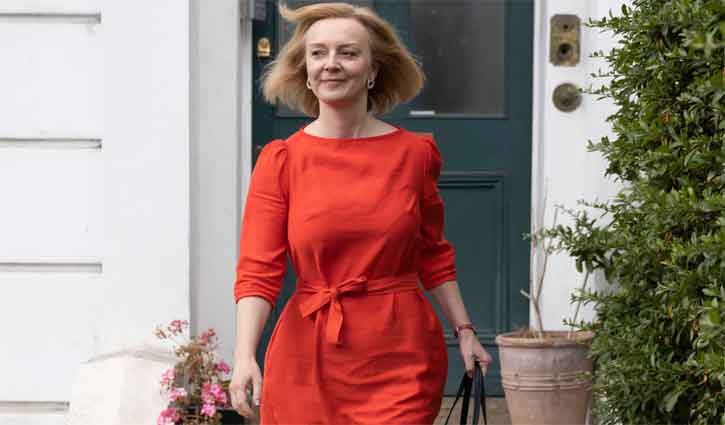
British Prime Minister Liz Truss resigned on Thursday after just six weeks in office.
Truss’s resignation came after 44 days, making her the shortest-serving prime minister in U.K. history. Her successor will be the third prime minister to lead Britain this year.
Speaking outside her official residence at No. 10 Downing St., Truss said that she had met with the chairman of the 1922 Committee — a group of senior Conservative lawmakers — and agreed to hold a leadership election “within the next week.”
“This will ensure that we remain on a path to deliver our fiscal plans and maintain our country’s economic stability and national security,” she added.
Following her resignation, President Biden said in a statement that “the United States and the United Kingdom are strong Allies and enduring friends — and that fact will never change.”
He thanked Truss “for her partnership on a range of issues including holding Russia accountable for its war against Ukraine,” and said the U.S. “will continue our close cooperation with the U.K. government as we work together to meet the global challenges our nations face.”
The prime minister’s resignation comes just one day after her home secretary, Suella Braverman, handed in her resignation after she breached ministerial rules by sending an official document to another lawmaker from her personal email. In her resignation letter, Braverman appeared to take aim at the prime minister, stating that she had “concerns about the direction of this government.”
Last week, Truss fired her closest ally, Chancellor of the Exchequer Kwasi Kwarteng, whose monetary policies caused immediate chaos in financial markets with the Bank of England forced to step in.
The £45 billion ($50.4 billion) “mini-budget” to cut taxes, even for the wealthiest in the country, caused economic fallout and the pound to plummet.
In a bid to counteract the economic downturn and a mounting Conservative Party revolt, Truss reversed cuts that had been set out in the mini-budget.
Speaking about the U-turn, she said, “Parts of our mini-budget went further and faster” than the markets had expected. She continued that she was still determined to achieve “what I promised — to deliver a higher-growth, more prosperous United Kingdom to see us through the storm we face.”






